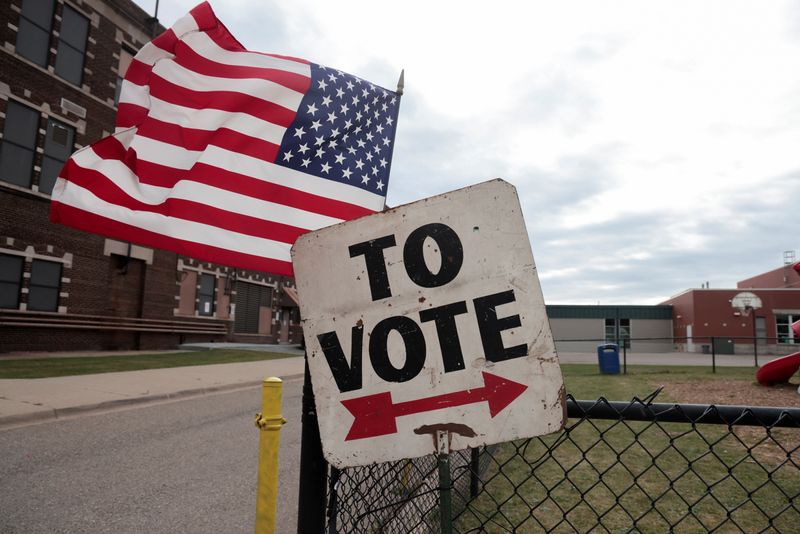Select Language

By Antoni Slodkowski, Liz Lee and Larissa Liao
BEIJING (Reuters) - As Americans voted in one of the tightest presidential elections in decades, China braced for an outcome that - regardless of who wins - would spell four more years of bitter superpower rivalry over trade, technology and security issues.
Strategists in Beijing said that while they expected more fiery rhetoric and potentially crippling tariffs from Republican candidate Donald Trump, some said he could be driven by pragmatism and willingness to strike deals on trade and Taiwan.
From Democratic candidate Kamala Harris, Beijing expected predictability and a continuation of U.S. President Joe Biden's approach centred on working with allies on China-related issues such as tech curbs, Taiwan, and conflicts in Ukraine and the Middle East.
Either outcome was unlikely to cause a shift, said analysts, given how wide-ranging the geopolitical rivalry with Beijing has become, and how politically lethal even a perception of reaching out to China is on both sides of the aisle in Washington.
"Regardless who is elected, the structural tensions are an undeniable reality and have become a widely accepted bipartisan consensus within the U.S.," said Henry Huiyao Wang of the Beijing-based Center for China and Globalization think tank.
China policies of either Trump or Harris administrations “will likely be strategically consistent," said experts from Peking University, Wang Jisi, Hu Ran, and Zhao Jianwei in their article in Foreign Affairs.
"As presidents, both candidates would present challenges and disadvantages for China, and neither seems likely to want a major military conflict or to cut off all economic and societal contacts," they said, adding that because of that, "Beijing is unlikely to have a clear preference."

